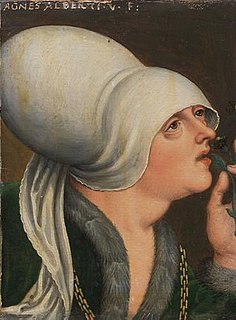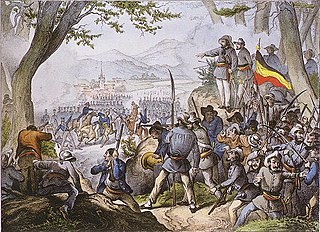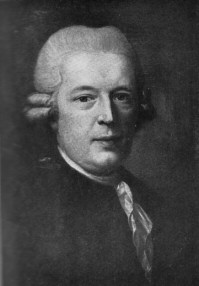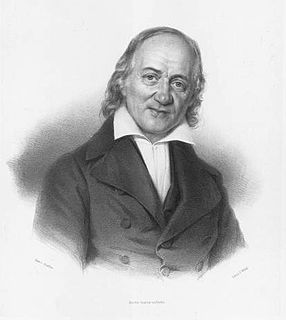
Gottfried Christoph Härtel (January 27, 1763 –July 25, 1827) was a music publisher in Leipzig, companion to Bernhard Christoph Breitkopf. He took over their company, Breitkopf & Härtel, in 1796 from Breitkopf, who was having financial difficulties.

Leipzig is the most populous city in the federal state of Saxony, Germany. With a population of 581,980 inhabitants as of 2017, it is Germany's tenth most populous city. Leipzig is located about 160 kilometres (99 mi) southwest of Berlin at the confluence of the White Elster, Pleiße and Parthe rivers at the southern end of the North German Plain.

Bernhard Christoph Breitkopf was a German printer and publisher, and founder of the publisher that became Breitkopf & Härtel.

Breitkopf & Härtel is the world's oldest music publishing house. The firm was founded in 1719 in Leipzig by Bernhard Christoph Breitkopf.
Härtel was also one of the founders of the Allgemeine musikalische Zeitung (General musical newspaper), one of the most important musical journals of the 19th century, which he started in 1798, along with Friedrich Rochlitz.

The Allgemeine musikalische Zeitung was a German-language periodical published in the 19th century. Comini (2008) has called it "the foremost German-language musical periodical of its time". It reviewed musical events taking place in many countries, focusing on the German-speaking nations, but also covering France, Italy, Russia, Britain, and even occasionally America.











